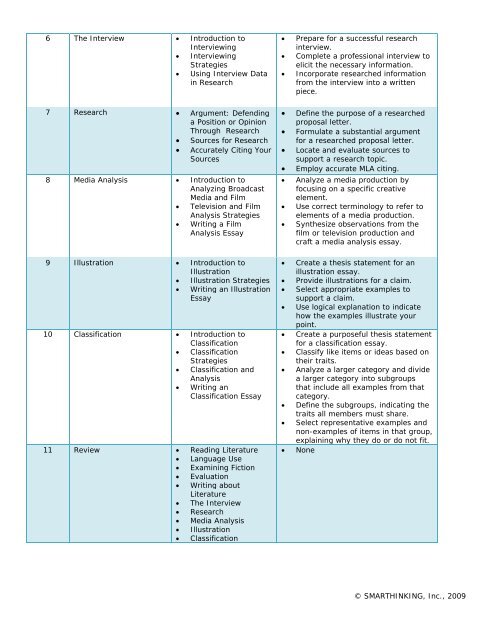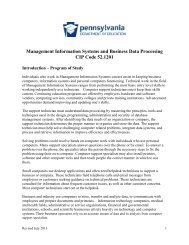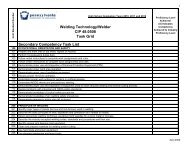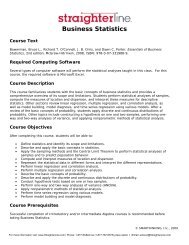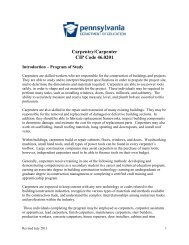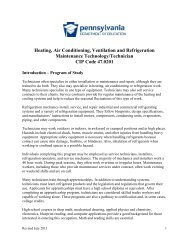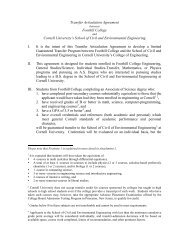English Composition II - CollegeTransfer.net
English Composition II - CollegeTransfer.net
English Composition II - CollegeTransfer.net
Create successful ePaper yourself
Turn your PDF publications into a flip-book with our unique Google optimized e-Paper software.
6 The Interview • Introduction to<br />
Interviewing<br />
• Interviewing<br />
Strategies<br />
• Using Interview Data<br />
in Research<br />
• Prepare for a successful research<br />
interview.<br />
• Complete a professional interview to<br />
elicit the necessary information.<br />
• Incorporate researched information<br />
from the interview into a written<br />
piece.<br />
7 Research • Argument: Defending<br />
a Position or Opinion<br />
Through Research<br />
• Sources for Research<br />
• Accurately Citing Your<br />
Sources<br />
8 Media Analysis • Introduction to<br />
Analyzing Broadcast<br />
Media and Film<br />
• Television and Film<br />
Analysis Strategies<br />
• Writing a Film<br />
Analysis Essay<br />
9 Illustration • Introduction to<br />
Illustration<br />
• Illustration Strategies<br />
• Writing an Illustration<br />
Essay<br />
10 Classification • Introduction to<br />
Classification<br />
• Classification<br />
Strategies<br />
• Classification and<br />
Analysis<br />
• Writing an<br />
Classification Essay<br />
11 Review • Reading Literature<br />
• Language Use<br />
• Examining Fiction<br />
• Evaluation<br />
• Writing about<br />
Literature<br />
• The Interview<br />
• Research<br />
• Media Analysis<br />
• Illustration<br />
• Classification<br />
• Define the purpose of a researched<br />
proposal letter.<br />
• Formulate a substantial argument<br />
for a researched proposal letter.<br />
• Locate and evaluate sources to<br />
support a research topic.<br />
• Employ accurate MLA citing.<br />
• Analyze a media production by<br />
focusing on a specific creative<br />
element.<br />
• Use correct terminology to refer to<br />
elements of a media production.<br />
• Synthesize observations from the<br />
film or television production and<br />
craft a media analysis essay.<br />
• Create a thesis statement for an<br />
illustration essay.<br />
• Provide illustrations for a claim.<br />
• Select appropriate examples to<br />
support a claim.<br />
• Use logical explanation to indicate<br />
how the examples illustrate your<br />
point.<br />
• Create a purposeful thesis statement<br />
for a classification essay.<br />
• Classify like items or ideas based on<br />
their traits.<br />
• Analyze a larger category and divide<br />
a larger category into subgroups<br />
that include all examples from that<br />
category.<br />
• Define the subgroups, indicating the<br />
traits all members must share.<br />
• Select representative examples and<br />
non-examples of items in that group,<br />
explaining why they do or do not fit.<br />
• None<br />
© SMARTHINKING, Inc., 2009


